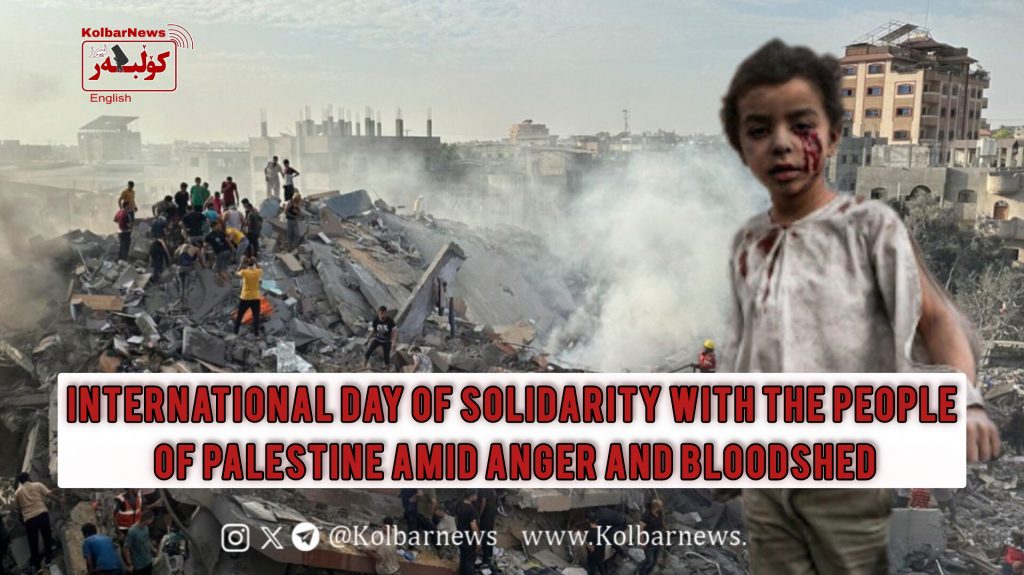
Friday, November 29, 2024, marked the International Day of Solidarity with the Palestinian People, established by the UN General Assembly in 1977. On this occasion, UN Secretary-General António Guterres issued a letter emphasizing the deepening challenges faced by Palestinians, stating:
“Commemorating this year’s International Day of Solidarity with the Palestinian People is particularly painful as achieving core objectives appears further away than ever.”
Guterres condemned both the devastating October 7, 2023, Hamas attack and the taking of hostages, while equally criticizing Israel’s collective punishment of Gaza’s civilian population.
In his letter, Guterres noted that Gaza has been devastated over the past year by attacks that have killed over 43,000 civilians, most of them women and children. He wrote:
“The humanitarian crisis worsens daily; it is appalling and unforgivable.” He also highlighted attacks on residents of the occupied West Bank and Jerusalem by the Israeli military, the expansion of illegal settlements, settler violence, forced evictions of Palestinians, and the demolition of their homes, all of which exacerbate the injustice.
He stated; “It is long overdue to make irreversible progress toward a two-state solution, where Israel and Palestine coexist in peace and security, with Jerusalem as the capital of both states. I call for full support for life-saving humanitarian aid for the Palestinian people.”
This statement continues Guterres’ firm condemnation of Israel’s aggression in Gaza. Since the start of Israel’s military campaign against defenseless Gazans, the UN Secretary-General has consistently stood with the Palestinian people.
Despite the unprecedented genocide and widespread destruction caused by Israel’s ruling regime and its military, their core objectives—displacement of Gazans, complete neutralization of Hamas, and the release of hostages—remain unachieved. The genocide in Gaza has become a historic stain on the governments of Israel, the United States, and Germany.
Looking ahead, the situation for Palestinians could worsen with the return of a Trump-led administration, whose members have openly called for the eradication of Palestine and Palestinians. As Palestinian journalist Rami Abu Jamous from Gaza noted, Trump may halt physical genocide but will continue political genocide, as evidenced by the Israeli parliament’s moves to ban UNRWA, the UN agency for Palestinian refugees, from operating in the occupied territories.
The most significant grassroots force capable of opposing such crimes is the global anti-war and anti-genocide movement focused on Gaza. A recent notable protest occurred in Montreal, Canada, where on November 21, 2024, 85,000 students across all Montreal universities went on strike against the Israeli government’s genocide in Gaza, expressing solidarity with Palestinians. This was the largest student action in Canadian history for international solidarity.
Earlier in April, students at Montreal’s McGill University launched a pro-Palestinian campaign. The November 21 action came as the Israeli army and Netanyahu’s cabinet escalated their attacks on Gaza following a ceasefire in Lebanon.
In the U.S., similar student protests have faced repression from police, the judiciary, and university administrations, slowing momentum. However, alongside these movements, figures like António Guterres and institutions like the International Criminal Court in The Hague, if they withstand pressure from the U.S. and European powers—especially the UK, France, and Germany—could significantly contribute to achieving peace.

